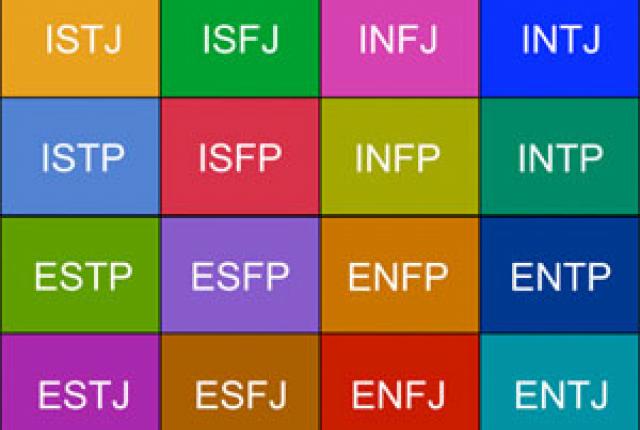When you think about what comprises a game review, what comes to mind? Certainly traditional review elements like a critique of the game’s mechanics, its fluidity, its narrative if that’s something that’s important to you, its graphics and sound, and even its “fun factor” are all things that would be popular answers. But for a growing number of game critics, aspects like the presence of gratuitous fanservice/examples of the male gaze and other social commentary-based criticisms are becoming one of those staples too. And, as expected in the gaming community, not everyone is pleased about it. But often what that vocal group of angry commentators fail to recognize is how this sort of deeper criticism functions not as “click bait,” but as a legitimate addition to the standard definition of what game – and any media for that matter – criticism really is.
Last week Polygon released their review of Bayonetta 2, the latest edition in the Japanese action franchise published by Nintendo. One very prominent facet of their review was how off-putting the excessive sexualization of Bayonetta was in the game, an aspect that caused the reviewer to give the game a lower – albeit still good – score than most other reviews of the game. One comment writer Arthur Gies made, among others, summarizes:
“…the deliberate sexualization and objectification on display serves as a jarring distraction from the creativity and design smarts elsewhere.” – Polygon
The backlash was immediate and vicious. Some claimed Polygon was catering to that infamous “social justice” crowd that wants to ruin gaming or that they were stirring up needless controversy on a great game in order to get views. Others sent angry reviews, comments, and emails to Nintendo urging them to demand that Polygon take down their review. The group of comments I most want to talk about, however, are those comments that insisted that this sort of social commentary has no place in a “real” game review; the ones that insisted that this score should be removed from Metacritic’s cumulative scores because “ethics” really shouldn’t contribute to a score that is supposed to be objective; that it wasn’t a “useful” review because of that aspect.
For me, a game review is a written representation of the writer’s experience playing the game. The reviewer does don a more critical lens than a normal player might, yes, but they’re ultimately looking for the same thing any other player is: a fun, rewarding, and engaging experience. Although many like to tote the idea that the best reviews are objective, I feel that the opposite is true. I could argue that there is truly no completely objective review and that, by its very definition, it is a subjective piece of work. However, putting that argument aside, what would an “objective review” look like? Perhaps it would mention the quality of the graphics output. Perhaps it would discuss whether or not there were any bugs within the game or how fluid the gameplay is. These things are fine, perhaps, as elements of the review, but would it be very interesting, helpful, or even entertaining if that’s all it was? After all, most people enjoy reading about, for example, the art direction or design in the game. But while one gamer might prefer an indie or artistically creative art style, another might give an ultra-realistic art style better marks.
When I read a review, I’m looking for a written representation of what makes the game worth playing or not. I’m looking to see what the reviewer’s experience was like playing the game; how well its mechanics combined with its creative content creates an immersive experience, and I don’t think I’m alone in that matter. The core argument of Polygon’s score deduction was how the persistent objectification removed Gies from the game, how it negatively affected his experience. Although I haven’t played Bayonetta 2 myself, I would probably write the same myself. After all, while I have more tolerance than others for this sort of thing, I can only take so many ass shots and boob windows before it starts to weigh down my experience. It’s a reviewer’s job to alert potential buyers or players to the things that might make or break a game. Although some might not be bothered by the overt sexualization of Bayonetta, others, like myself, do appreciate being warned of this potentially negative aspect of the game as much as someone might appreciate knowing how many bugs might be present in the game, how poor the voice acting was, or, in Sam’s case, how many dead children are in the game. Polygon’s judgment rests in a perfectly standard and valid way of reviewing a game: how well does the game craft a fun experience, and let’s face it, as much as some would like to deny it, needless sexual exploitation is not always distracting in a good way.





9 thoughts on “In Defense of Polygon”
Some kinds of critique completely miss the point of creative intent. This is how reviews will become irrelevant, and a disservice to creators and consumers alike. When a game review is lacking gameplay and technical details to speak of what personally offended the writer what you have is a personal blog on a mainstream site.
It’s like if I were to waste a paragraph of my Halo review to talk about how it triggered me because of past gun violence in neighborhood. I have an issue with guns in this country; but that has nothing to do with an FPS review. These reviews are for potential consumers, and our over reliance on reviews have spawned people who take advantage of their sites audience to share their personal politics.
It’s not healthy for the industry. It misrepresents games. And ultimately it insults female gamers ironically (my best friend, a female gamer, was appalled by the review to the point of being offended).
I liked their review. Bayonetta is a game that is near and dear to my heart because of how to plays with tropes and styles that are prevalent in video games. I’ll judge for myself, of course, when I get it, but I am weary//wary of games that try to critique or comment on a trend and just end up becoming another example of that trend.
I think you’ve missed the point of Sarah’s post, and also the review itself. The entire last portion of the review is all about game mechanics and technical details. However, it’s impossible for technical details and mechanics to exist outside of a game environment. Sometimes the impact of the game environment on game play is negligible (Tetris is the classic example), but even in this basic example it’s essential that the theme and narrative elements don’t detract from either the technical aspects or the game play aspects. The two are always intrinsically linked- game mechanics only make sense within a constructed game world, and game narratives don’t exist without the mechanics and player actions that support them.
What you’re asking for is a completely robotic, opinion-free review. Such a thing doesn’t exist, reviews are always one person’s impression of a text. I suppose you could just get a list of tech specs and look at the basic genre characteristics, but anything further than that is going to involve opinion and interpretation. In this case, the reviewer felt that the narrative/theme elements were distracting enough that they seriously detracted from the game play. That’s a completely legitimate criticism. I’m not saying it’s one anyone has to agree with, but it is a valid point to bring up.
What baffles me about this whole situation is how bizarre the arguments against Polygon sound when made in the context of, say, film criticism. If a movie injects sex into itself without any justification from the narrative, you can be sure critics will mention it.
Game of Thrones is constantly sparking discussions over its approach to sex. But even the show’s most militant supporters do not complain that television critics are overstepping their boundaries by having those discussions. Or you can look at the controversy around Robin Thicke’s Blurred Lines. Music critics did not think twice about tackling the song’s content or the music video that accompanied it.
But then I wonder how many gamers criticizing Polygon also take part in those discussions over Game of Thrones or Robin Thicke. It is like they refuse to take their own games seriously as art. They are implying that games cannot rise to the same standards other mediums can.
“The entire last portion of the review is all about game mechanics and technical details.”
Which was a poorly communicated and insultingly short area.
The kind of review I’m asking for has been down since I was a kid (GamePro, EGM) – so I’m not asking for standards that can’t happen. They were certainly the norm before certain trends started missing the point for self gratification.
Go find EGM’s review of MGS4 or Halo 3 and see what I’m talking about.
So, just for curiosity’s sake, I counted. There are four paragraphs that are explicitly about the writer’s review of the problematic narrative content (maybe 5 if you count part of the intro, but that’s not really explanation), and six or seven about the mechanics (technically two sentences below a picture stand on their own and are formatted like a paragraph, but could also conceivably be part of the previous one, so I’ll grant that it might only be 6, and I also didn’t count any of the intro/conclusion here). I suppose if we really wanted I could do a word count and look at the exact balance between the two, but that seems a little pedantic.
Both mechanics and narrative are mentioned in the introductory and conclusion sections of the review.
Again, I’m not saying you have to agree with the reviewer’s perspective. It’s totally cool to disagree with reviewers- I disagree all the time, because I generally know what I like about games and what I don’t. But narrative/theme elements are valid things to discuss in a review. When Borderlands first came out I absolutely hated the art-style- same type of issue. It doesn’t have to do with the mechanics, but with how the game world impacts our interactions with those mechanics.
I also did a quick google search to look for EGM’s review of MGS4 and Halo 3. EGM is notable for refusing to review MSG4 for ethical reasons (and I totally agree with them on it!) and I can’t seem to find a review for Halo 3. If you mean 1UP, they haven’t been EGM for years (since 2009).
Oh yeah classic EGM ended about when reviews were only starting to be printed on websites. I’ll have to check my stash to see that MGS review; I could have sworn they did do a review.
Narrative and themes are perfectly valid in a review, as well as art style. I have no issue with this. I just felt the Bayo2 review missed the point of the themes the game was going for.
The EGM/MSG4 case is actually a really good example of ethics in games journalism- apparently Konami demanded that no one mentioned the install size or the length of cut scenes- ridiculous, because the game was huge and because I can’t even imagine reviewing a MSG game without talking about the (ridiculously long) cut scenes. Here’s a link, if you’re interested.
http://www.destructoid.com/egm-refuses-to-review-metal-gear-solid-4-88651.phtml
And as it turns out I WAS thinking about their MGS3 review. Mental lapse!
And yeah, EGM was legit. We need more of that action.